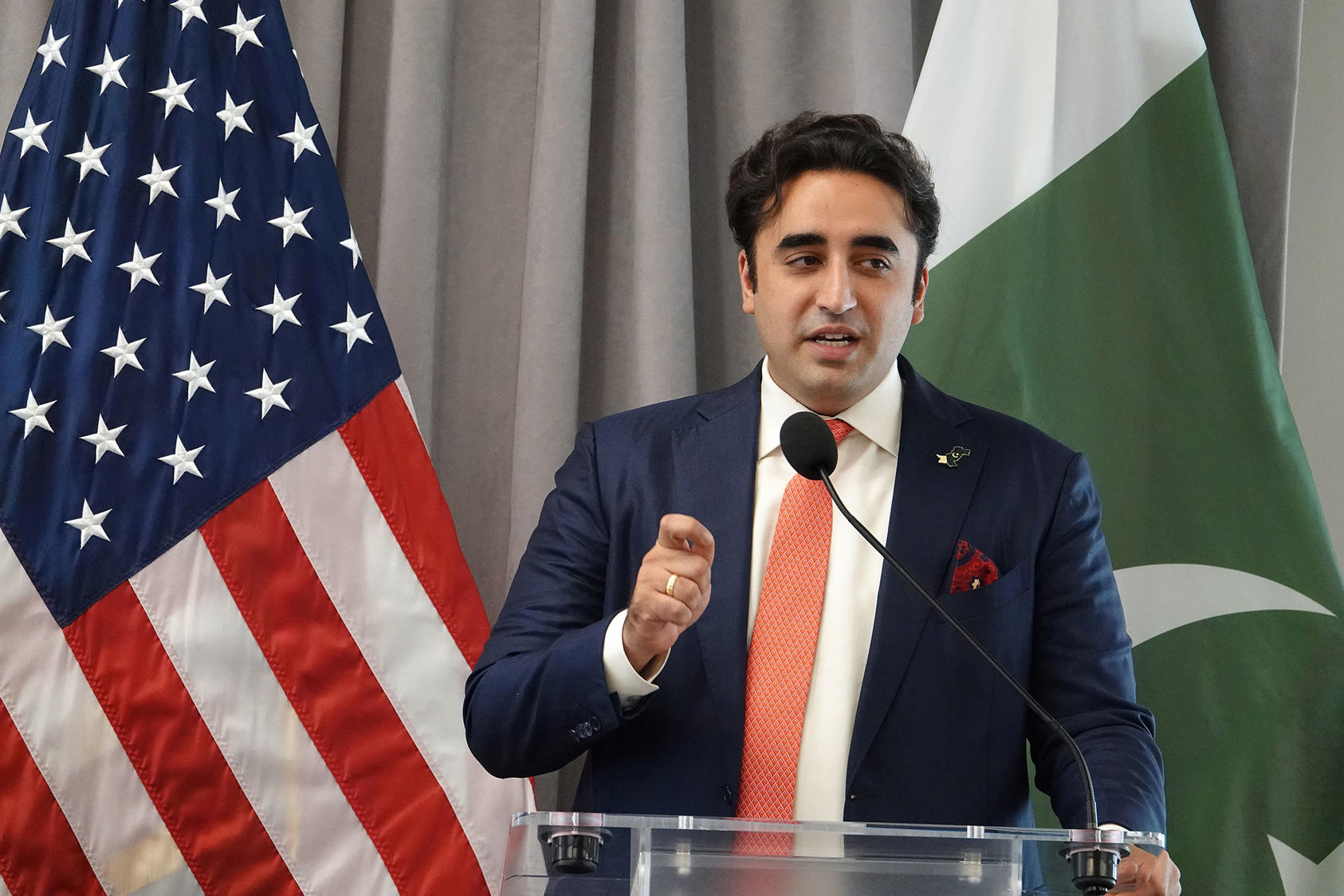The Current Situation in Pakistan
A USIP Fact Sheet
Pakistan continues to face multiple sources of internal and external conflict. Extremism and intolerance of diversity and dissent have grown, fuelled by a narrow vision of Pakistan’s national identity, and are threatening the country’s prospects for social cohesion and stability.
The inability of state institutions to reliably provide peaceful ways to resolve grievances has encouraged groups to seek violence as an alternative. The country saw peaceful political transitions after the 2013 and 2018 elections. However, as the country prepares for anticipated elections in 2023, it continues to face a fragile economy along with deepening domestic polarization. Meanwhile, devastating flooding across Pakistan in 2022 has caused billions in damage, strained the country’s agriculture and health sectors, and also laid bare Pakistan’s vulnerability to climate disasters and troubling weaknesses in governance and economic stability.
Regionally, Pakistan faces a resurgence of extremist groups along its border with Afghanistan, which has raised tensions with Taliban-led Afghanistan. Despite a declared ceasefire on the Line of Control in Kashmir in 2021, relations with India remain stagnant and vulnerable to crises that pose a threat to regional and international security. The presence and influence of China, as a great power and close ally of Pakistan, has both the potential to ameliorate and exacerbate various internal and external conflicts in the region.
USIP’S Work
The U.S. Institute of Peace has conducted research and analysis and promoted dialogue in Pakistan since the 1990s, with a presence in the country since 2013. The Institute works to help reverse Pakistan’s growing intolerance of diversity and to increase social cohesion. USIP supports local organizations that develop innovative ways to build peace and promote narratives of inclusion using media, arts, technology, dialogues and education.
USIP works with state institutions in their efforts to be more responsive to citizens’ needs, which can reduce the use of violence to resolve grievances. The Institute supports work to improve police-community relations, promote greater access to justice and strengthen inclusive democratic institutions and governance. USIP also conducts and supports research in Pakistan to better understand drivers of peace and conflict and informs international policies and programs that promote peace and tolerance within Pakistan, between Pakistan and its neighbors, and between Pakistan and the United States.
USIP’s Work in Pakistan Includes:
Improving police-community relations for effective law enforcement
The Pakistani police have struggled with a poor relationship with the public, characterized by mistrust and mistreatment, which has hindered effective policing. USIP has partnered with national and provincial police departments to aid in building police-community relationships and strengthening policing in Pakistan through training, capacity building and social media engagement.
Building sustainable mechanisms for dialogue, critical thinking and peace education.
Nearly two-thirds of Pakistan’s population is under the age of 30. Youth with access to higher education carry disproportionate influence in society. However, Pakistan’s siloed education system does not allow interactions across diverse groups or campuses, leading to intolerance, and in some cases, radicalization. To tackle growing intolerance of diversity on university campuses, USIP has partnered with civil society and state institutions to support programs that establish sustainable mechanisms for dialogue, critical thinking and peace education.
Helping Pakistanis rebuild traditions of tolerance to counter extremists’ demands for violence
USIP supports local cultural leaders, civil society organizations, artists and others in reviving local traditions and discourses that encourage acceptance of diversity, promote dialogue and address social change. USIP also supports media production — including theater, documentaries and collections of short stories — which offer counter narratives to extremism and religious fundamentalism.
Support for acceptance and inclusion of religious minorities
Relations between religious communities in Pakistan have deteriorated, with some instances of intercommunal violence or other forms of exclusion. USIP supports the efforts of local peacebuilders, including religious scholars and leaders, to promote interfaith harmony, peaceful coexistence and equitable inclusion of minorities (gender, ethnic and religious) in all spheres of public life.
Supporting inclusive and democratic institutions
To help democratic institutions be more responsive to citizens, USIP supports technical assistance to state institutions and efforts to empower local governments, along with helping relevant civil society actors advocate for greater inclusion of marginalized groups. Gender has been a major theme of this effort and across USIP’s programming in Pakistan. These programs empower women in peacebuilding and democratic processes through research, advocacy and capacity building.





